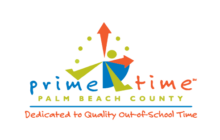9:00 am - 10:30 am
Over the last 5 years, Prime Time has helped the JASE program become a successful afterschool program in Martin County. We are thankful for the variety of trainings offered, yearly actions plans and multiple site visits.
Afterschool ProfessionalMartin County Parks and Recreation
Teen Advisory Council Series Part 1 – VIRTUAL
Please note: Only afterschool practitioners working with middle school, high school, or fifth grade elementary youth should register for this training.
Participants are REQUIRED TO ATTEND ALL TRAININGS in the series and complete assignments in between trainings.
By registering for this training, you are committing to all training session dates.
Part 1 – Getting Started
Part 2 – Core Components
Part 3 – Finding Clarity
Part 4 – Focus for Success
Do you want to support teens in developing their leadership skills? Starting a Teen Advisory Council (TAC) is a great way to accomplish that goal! TAC involvement allows teens to become your partners in designing, planning, and implementing programs and often leads to stronger youth engagement and higher program participation and attendance. In this captivating four-part series, you will learn how to create, run, and sustain a fun and effective TAC that will strengthen your program, give youth a meaningful voice, and provide additional benefits for both teens and adults.
Upon successful completion of this training series and follow-up assignment(s), the participant will earn 1 CEU of training.
Getting Started – Part 1
Training Objectives:
Participants will:
- Name the step-by-step process of developing a teen advisory council.
Core Components - Part 2
Training Objectives:
Participants will:
- Identify the three core components of an effective teen advisory council.
Finding Clarity - Part 3
Training Objectives:
Participants will:
- Practice developing a teen advisory council mission statement.
Focus for Success - Part 4
Training Objectives:
Participants will:
- Examine the teen advisory council program year cycle and reflect on its importance.
Core Knowledge, Skills and Competencies Addressed (CKSCs):
Learning Environments and Curriculum
Physical Environment and Activities
Apply – I. Collaborates with others to maximize opportunities for children and youth.
Relationships and Interactions with Children and Youth
Enhancing Group Experiences
Identify – B. Understands the importance of organization and flexibility when working with groups of children and youth.
Apply – C. Plans and guides group activities to teach children and youth cooperation and collaboration.
Youth Engagement, Voice, and Choice
Apply – C. Works with young people to create an environment that offers various opportunities.
for youth leadership and input.
Apply – D. Promotes and supports child-initiated and youth-led planning and learning.
Primary QIS Scales Addressed:
II. Supportive Environment
II-H. Scaffolding Learning
III. Interactive Environment
III-M. Promoting Responsibility and Leadership

